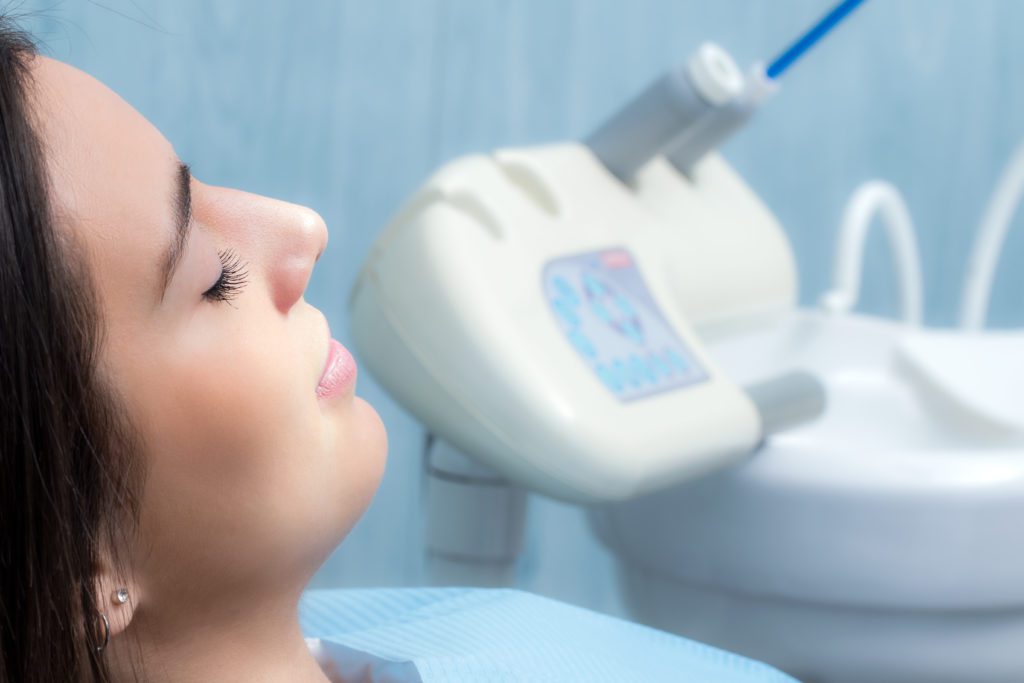Dental Sedation in Towson, Maryland
The team at Cosmetic and Advanced Dentistry commits to providing the most necessary dental care to each and every patient. There are various reasons why people avoid the dentist or put off getting the dental care they need.
If your oral health is suffering, we may recommend sedation dentistry to help you get the dental treatments you have been avoiding.
Led by Dr. Ed Lazer and Dr. Andrey Doroshenko, our dental practice offers various forms of sedation methods to our patients from Towson, Maryland. They use dental sedation for patients who receive cosmetic, general dental care treatments.

Sedation dentistry allows many patients in our practice to receive the dental care they need. The most common reason we use it is for people who suffer from dental anxiety or fear of the dentist.
Whether it stems from a traumatic past experience, fear of the perceived pain, or simply due to the condition of one’s teeth. There is a sedation method that we can use to help you regain better oral health.
Even people who fear needles, medical settings, or drills can benefit from dental sedation. More benefits include:
- Enhances the effectiveness of anesthetic
- Little to no memory of the appointment
- Alleviates anxiety
- Less likely to suffer from joint and muscle soreness
- Decreases gag reflex
- Enables more treatment to be provided in fewer visits
- Your dentist will be able to complete the treatment in a timelier manner
Sedation Dentistry Methods
Nitrous Oxide
Nitrous Oxide, or laughing gas, is very common in dentistry. It is completely safe and very effective. It involves using a small cannula (nasal mask) to deliver the gas via the nasal passage during your entire treatment or procedure.
The cannula will sit right beneath your nose. The effects are instant and will stop almost immediately when the dentist stops the gas. Because of this, patients will be able to drive themselves to and from their appointments.
Oral Sedation
Oral sedation is a form of prescribed medication that the dentist gives to a patient before they are about to undergo a procedure that they may find unpleasant.
Our dentist can administer oral sedation in different ways, but the most common way is through the use of tablets or pills. You will take the tablet on an empty stomach at least two hours before the procedure starts. If you have difficulty swallowing, then you can take it with a drink.
Oral sedation comes in many forms, but the most common ones are benzodiazepines and opioids. Benzodiazepines work by slowing down your brain activity and relieving anxiety whereas opioids work by reducing pain signals in your body and making you relax or feel sleepy.
The sedative will put you in a total state of relaxation where you will not experience anxiety or fear. However, you will not be completely asleep and will have full control over your body. You will also be able to interact with the dental staff.
The effects are not immediate; however, they will impair your ability to drive so you will need to find a ride to and from your appointment. Oral sedation takes several hours to fully wear off.
IV Sedation
IV sedation is slowly growing in popularity because it is extremely effective and puts the patient in a deep state of sedation. While you are not completely unconscious, you are however much less aware of your surroundings.
Dr. Doroshenko is certified to use this type of sedation method. He will use a computer to monitor the patient’s response to the sedatives and vital signs, such as heart rate, blood pressure, and oxygen saturation. Because of this, the effects are immediate and the dentist or anesthesiologist can precisely control the medication levels.
A dentist can become a Certified Registered Dental Anesthesiologist (CRDA) and receive formal training in administering anesthesia. They may then administer anesthesia to patients before, during, or after the procedure.
In dentistry, it is common for anesthesiologists to use propofol or fentanyl as their primary sedative. Dentists commonly use numbing agents such as lidocaine in dental treatments.
FAQs
How long does dental sedation last?
The duration of dental sedation depends on the type of sedation your dentist will use. Nitrous oxide typically wears off within a few minutes after the dentist stops the gas supply. On the other hand, oral sedation can last for a few hours. IV sedation can last for several hours.
The specific duration of sedation for your procedure will depend on your medical history, the type of sedation your dentist plans to use, and the length of your dental procedure. Your dentist will provide more information about the expected duration of sedation.
Does dental insurance cover sedation dentistry?
Unfortunately, most dental insurance plans do not cover sedation dentistry. However, some insurance plans may cover a portion of the cost. This will depend on the type of sedation your dentist plans to use and the reason for the procedure. It’s best to check with your dental insurance provider to determine if they cover sedation dentistry under your plan.
Does sedation dentistry put you to sleep?
Not necessarily. Sedation dentistry does not always involve putting the patient to sleep. The level of sedation can vary from mild relaxation to moderate sedation. However, it typically does not require the patient to be unconscious.
Can I drive myself home after sedation dentistry?
If your dentist used nitrous oxide for your procedure, you can drive home on your own. The effects of nitrous oxide wear off quickly. However, if your dentist used oral sedation or IV sedation, you should arrange for transportation with a family member or close friend.
What not to do before sedation?
Before undergoing sedation dentistry, you should avoid eating or drinking anything for at least six hours before the procedure. Additionally, do not consume any alcohol on the day of your appointment.
It is also essential to inform your dentist if you take any medications, such as over-the-counter drugs or supplements. Finally, if you are having oral sedation or IV sedation, you have someone available to drive you home after the procedure.
How safe is sedation dentistry?
Sedation dentistry is generally safe when administered by a qualified dental professional. However, as with any medical procedure, there are some risks and potential side effects. These may include respiratory depression, allergic reactions, and nausea.
A patient can minimize risks and potential complications by following pre-operative and post-operative instructions. You should also provide your dentist with an accurate medical history. Discuss the risks and benefits of sedation dentistry with your dentist before the procedure to determine if it is the right choice.
Call Today to Learn About Sedation Dentistry
Contact Cosmetic and Advanced Dentistry to learn more about our sedation dentistry options. You can reach our Towson, MD dentist office at (410) 697-6290 or you can schedule an appointment online.
